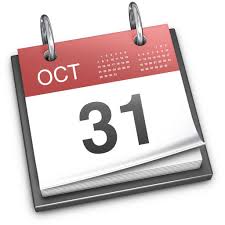|
Tonight is Halloween. My kids will be going door-to-door getting candy, and we'll probably be handing out candy to neighborhood kids from our door as well. But October 31 is significant for more reasons than just this. October 31 is also "Reformation Day" - the day in 1517 when a monk named Martin Luther nailed 95 Theses to a church door in Germany and sparked what we now call the Protestant Reformation. (For a recommended introduction to Luther's 95 Theses, check out this book.) Here's what Philip Schaff, a noted church historian, says about the significance of the Reformation: “The Reformation of the sixteenth century is, next to the introduction of Christianity, the greatest event in history. It marks the end of the Middle Ages and the beginning of modern times. Starting from religion, it gave, directly or indirectly, a mighty impulse to every forward movement, and made Protestantism the chief propelling force in the history of modern civilization” (Philip Schaff, History of the Christian Church, Vol. VII: Modern Christianity—The German Reformation [1910; repr., Grand Rapids: Eerdmans, 1980], 1). Earlier this week, someone passed a post along to me from Ligonier Ministries. This post shares a bit more about the history of the Reformation and key players in it. I encourage you to take a few minutes on this Reformation Day of 2014 and check it out. Here's the post: "The Reformation and the Men Behind It" by Stephen Lawson Please note the usual disclaimer, that my recommendation of this article is not necessarily an endorsement of everything else on the site where this was posted.
0 Comments
Leave a Reply. |
Tim WiebeChristian. Husband. Father. Pastor. Learner. Contributor. Reader. Categories
All
Archives
June 2024
|
© 2014-2024 | 11607 M Circle, Omaha NE, 68137 | www.thebrooksideinstitute.net


 RSS Feed
RSS Feed
